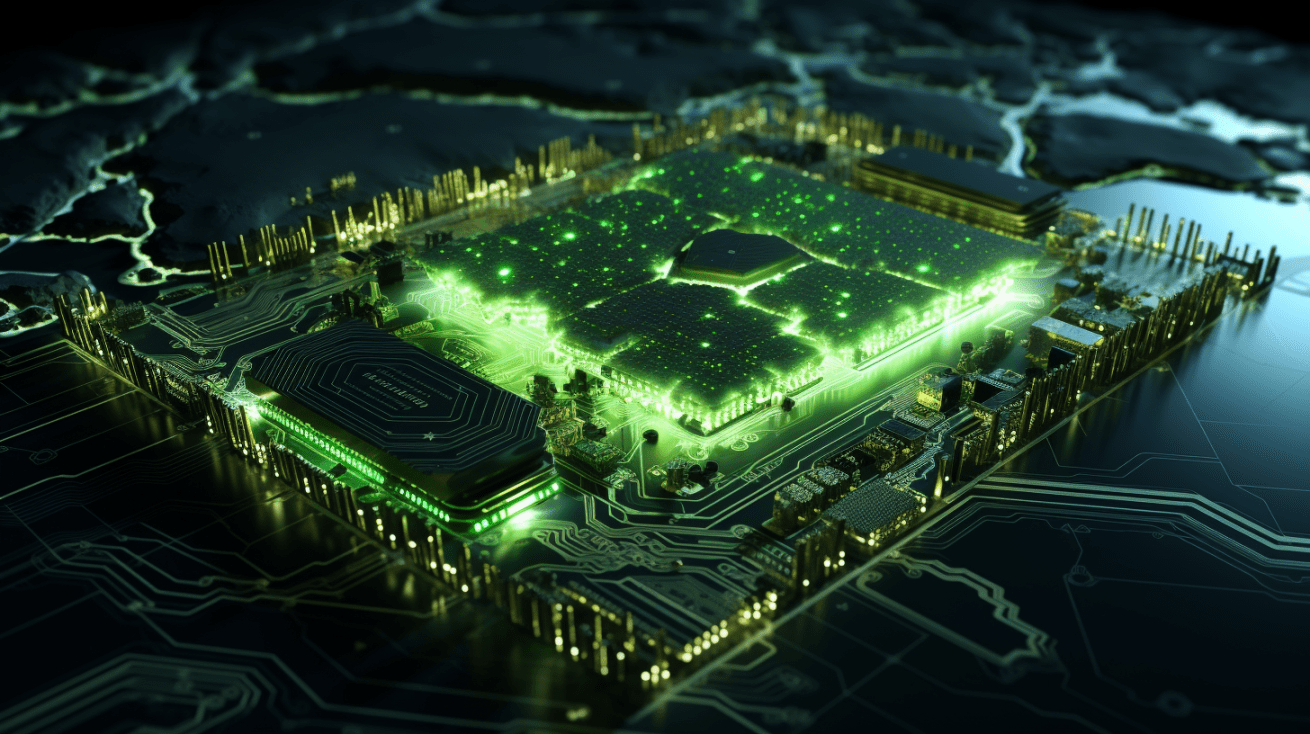Saudi Arabia and UAE’s Bid in the AI Arms Race: H100 Nvidia Chips Take Center Stage
The global AI arms race intensifies as nations pivot towards technology to stake their claim in the digital future. Amidst this scramble, Nvidia chips, especially the H100, emerge as the beacon for technological advancement, with Saudi Arabia and the UAE making headline-worthy strides. The two Gulf nations are not only amplifying their AI ambitions but also causing ripples in the international tech community.
Global Race for AI Supremacy
Nvidia’s high-performance chips are becoming the backbone for nations aspiring for AI leadership. With a looming semiconductor shortage making these H100 chips Silicon Valley’s most treasured commodity, Saudi Arabia and the UAE have unmistakably marked their intent. “The Gulf powerhouses have publicly stated their goal of becoming leaders in AI as they pursue ambitious plans to turbocharge their economies,” reveals an inside source.
Gulf Nations’ AI Aspirations
Saudi Arabia’s assertive move, purchasing at least 3,000 of Nvidia’s H100 chips — a $40,000 processor described as “the world’s first computer chip designed for generative AI” — showcases their determination. These chips were acquired via the public research institution, King Abdullah University of Science and Technology (Kaust). On the other hand, the UAE isn’t trailing far behind. Having developed its very own open-source large language model called Falcon, their resolve is evident. “The UAE has made a decision that it wants to own and control its own computational power and talent, have their platforms and not be dependent on the Chinese or the Americans,” an Abu Dhabi spokesperson commented.
Addressing Ethical Concerns in AI Development
However, as AI ambitions soar, they also invite scrutiny. Western AI leaders are raising valid concerns, particularly regarding the ethical frameworks within which these technologies will operate. With the vast capabilities of AI, especially in surveillance and data analytics, there’s a pressing need for checks and balances. Iverna McGowan, director of the Center for Democracy and Technology’s Europe office, highlighted:
“Pair this with the fact that we know how AI can have discriminatory impacts, or be used to turbocharge unlawful surveillance. It’s a frightening thought.”
The Petrodollar’s Role in AI Advancements
Fuelled by petrodollar windfalls from last year’s surge in energy prices, both Saudi Arabia and the UAE are not just buyers but are becoming influencers in the AI domain. AI start-ups in the West have noticed representatives of Gulf state-affiliated funds approaching them. “We have had offers of immense financings and access to data, in order to tap indirectly into our talent,” confessed an executive from a European AI company.
OpenAI chief executive Sam Altman also acknowledged the Gulf’s foresight, praising Abu Dhabi’s recognition of AI’s importance.
“There has been discussion about AI, here in particular, in Abu Dhabi, before it was cool. Now everyone is on the AI bandwagon… but we have special appreciation for the people who were talking about this when everyone thought AI was not going to happen,” Altman noted.
Let the AI Arms Race commence…
The recent AI initiatives by Saudi Arabia and the UAE underscore a shift in the global tech equilibrium. With H100 Nvidia chips at the epicentre of this technological transformation, it’s clear that the future of AI will not be monopolized but will witness diverse players shaping its trajectory. As these developments unfold, what are your thoughts on this seismic shift in the AI realm? Do you see other nations joining the fray soon? Share your insights and join the conversation below.











